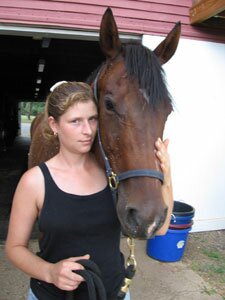NEWS- Flim flam man: Scheme nets nearly $150K, 78 months
It isn't often that a federal judge calls somebody a liar in open court, but in the case of James Newman, federal judge Norman Moon had heard enough.
On July 25, after having already pleaded guilty to "transporting stolen money taken by fraud," Newman was on the stand in his sentencing hearing, downplaying the extent of the fraud, when Moon sensed the Charlottesville man was being less than honest.
"You seem to say anything," Moon told Newman.
"I apologize, your honor, I've been up since 4am," Newman replied.
The next day Moon handed Newman the maximum 78 months in federal prison. "Just because you're tired," said the judge, "doesn't mean you start telling lies."
Trial evidence and interviews suggest that Newman didn't start telling his lies last month. By 2004, he had persuaded at least 11 people that he was a certified financial advisor and bilked them out of over $148,500.
Newman hit Hannah Watters of Gordonsville the hardest, making off with $40,000– the most from any single victim in the case. And Watters' purpose for the money adds pain and poignancy to the scam.
Watters had lost partial use of her right arm in a horse show accident. Because her insurer refused to pay the resulting medical bills and she received no workman's compensation, her grandfather gave her the money to help cover her mounting debts.
"Horses were all I knew, so I didn't really have any marketable skills," she says. "I was living off my savings for a year and a half, and a friend said, 'Oh, you need to meet with this guy; he'll get your money invested better.'"
If Watters had done some digging, she might have learned that Newman had been released from federal prison on April 2, 1993, after having been convicted in a similar scam and serving two years.
It was at this time that Tom Estes first became acquainted with Newman, whom Estes calls "a good friend."
"He's utterly charming. He can charm the birds out of the trees," Estes says, recalling that Newman was a member of the vestry of St. Paul's Memorial Church and a fundraiser for the non-profit brain injury organization called Virginia Neurocare. Newman, however, neglected to mention his criminal history to Estes.
"I found it out from somebody else," says Estes, "and I said to him 'Why didn't you tell me?' He said 'Well, I just don't go around telling anybody,' and I said, 'I'm not just anybody, we're good friends!'"
While Watters recalls that Newman claimed to know Donald Trump, to drive a Mercedes "on weekends," and to have a master's degree from Columbia, she nevertheless had enough confidence in him to write a check to his "company"– Albemarle Capital Partners Inc. Watters acknowledges that Newman's promises made her willing to chalk up what she considered obvious fibs to mere boasting.
"I was abandoned by my father," Watters explains, "so for a man to come in and say he's going to take care of everything, I was a pretty easy target."
Watters says Newman told her he would invest her money with Fidelity Investments, some of it in a mutual fund and the rest in a second Fidelity account. While Newman did open the mutual fund, Watters' money never made it to the second account.
"He'd give me a deadline for when the money would be in the account," she says, "and it would come and go, and the money wasn't there. He would have an excuse. He'd always say it was my fault somehow."
Watters believed the lie in part because Newman had found her a job assisting him as an events planner at Virginia Neurocare. However, she began to suspect something was amiss when he refused to allow her to speak with customers.
"He wouldn't let me deal with people directly. He'd say 'Oh, I'll talk to this person," she says. "He was trying to undermine my confidence."
Estes says Watters wasn't the first woman Newman had duped.
"I knew other women he advised about money," Estes says. "I knew he was very close to them, and I knew he was, in effect, investing money for them. I knew he was not a certified financial advisor, but in retrospect I can see he was playing that role."
Watters says the last straw was when she received an email from Newman in July 2004 likening her manner of dress to people who clean up after horses rather than riding them. "He said, 'Everyone in Keswick sees you as a groom.' The email was about two pages long. He sounded like a lunatic."
At that point, Watters finally decided to contact the FBI who informed her of Newman's previous conviction. They also said that other victims had contacted federal investigators. By December 2004, the FBI had enough evidence to indict Newman, and on February 24, 2005, he entered a guilty plea.
Watters, who now manages the Wolftrap Farm bed and breakfast in Gordonsville, says that in spite of Newman's being behind bars, he still haunts her.
"I have dreams twice a week that I'm confronting him, yelling at him, 'I want my money now!'" she says. "The whole thing was just so traumatic for me that I want to get as far away from it as possible."

Among James Newman's victims was accident victim Hannah Watters, from whom he stole the $40,000 that was supposed to cover her mounting medical costs. PHOTO BY LINDSAY BARNES
#